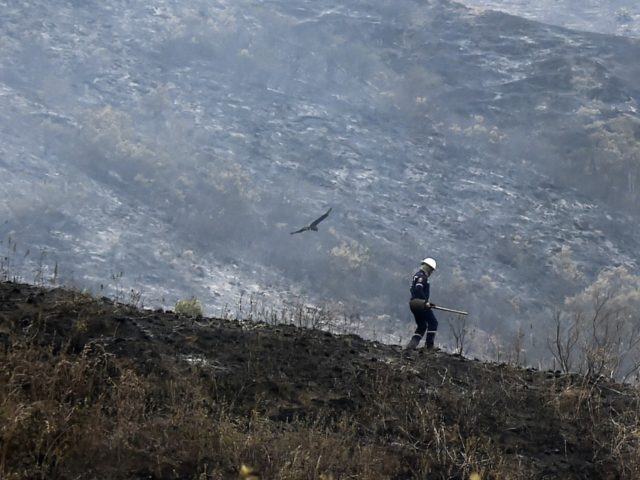Historic levels of coca cultivation and other illicit activities at the hands of Communist terrorists have contributed to skyrocketing deforestation rates in Colombia since the rebels signed a peace pact with the government in 2016, official figures show.
At the end of last month, Iván Márquez, a commander in the U.S.-designated terrorist group, the Revolutionary Armed Forces of Colombia (FARC) – called on his followers to take up arms against the Colombian government again. Márquez’ call to arms came less than three years after the FARC signed the peace agreement in late 2016.
According to a satellite figures-based report issued this year by the Colombian government, the acres of forest lost across the country significantly increased by nearly 60 percent from 2015 (306,497 acres), the year before the FARC demobilized, to 2018 (487,190 acres).
Between 2016, when rebels agreed to the peace deal, and last year, the overall loss of forest in all of Colombia reached an estimated 1,472,075 acres or an area nearly 34 times the size of Washington, DC.
Deforestation levels in all of Colombia did drop by ten percent from 543,565 in 2017 to 487,190 the following year.
In the Amazon Rainforest alone, often referred to as the Earth’s lung, Colombia has reportedly lost about 870,792 acres of forest, or an area about 20 times the size of the U.S. capital, during the peace deal — between 2016 and 2018.
Deforestation in the Amazon also dropped about four percent from 2017 (356,195 acres) to 2018 (341,440).
The Colombian government deemed coca cultivation, cocaine production, extensive cattle ranching, road construction, expansion of the agricultural frontier, as well as illegal mining and logging as the top contributors to deforestation in the country.
Several news reports have linked FARC rebels to several of the illicit activities fueling deforestation, including coca cultivation in addition to illegal mining and logging. There was also a rush of land-grabbing for cattle ranches after the FARC, which used to hide in the forest, reached the peace pact with the government.
The FARC is considered one of the most prominent cocaine traffickers in Latin America. Since the Marxist group signed the peace deal, Colombia has again become the world’s top cultivator and producer of cocaine.
Cocaine cultivation and production in the South American country reached the highest levels since the United States began keeping track after the peace agreement. A recent White House report revealed that last year coca cultivation in Colombia covered an area of about 513,979 acres that yielded “887 pure metric tons” of cocaine.
The 2018 figures mark a “minor decrease” from the 516,450 acres under coca cultivation that produced “900 pure metric tons” of cocaine the previous year, the White House noted.
Lethal cocaine overdoses in the United States, one of the top destinations of the drug produced in Colombia, have dramatically increased since the signing of the peace deal between the FARC and Bogota. In 2016, deadly cocaine overdoses in the United States resulted in a record 10,458 deaths, followed by 14,069 in 2017, and 14,794 last year, for a total of 39,321 fatalities, figures from the U.S. Centers for Disease Control and Prevention (CDC) show.
While several world leaders blamed the conservative government of Brazilian President Jair Bolsonaro for the recent fires in the Amazon, they have been mum about the FARC’s contribution to deforestation in the same region.

COMMENTS
Please let us know if you're having issues with commenting.